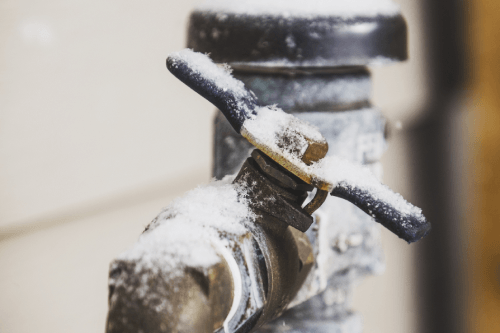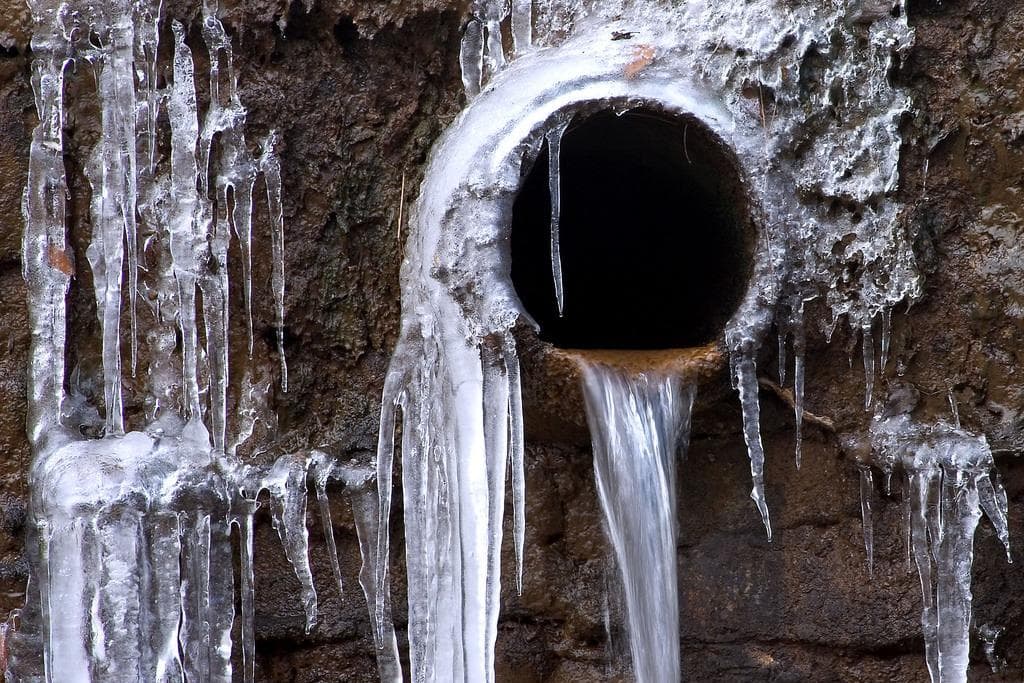Tips to Keep Your Pipes from Freezing Damage: Essential Advice
Tips to Keep Your Pipes from Freezing Damage: Essential Advice
Blog Article
We've stumbled upon the article about How to prepare your home plumbing for winter weather listed below on the internet and accepted it made good sense to discuss it with you over here.

Cold weather can damage your pipes, specifically by freezing pipelines. Here's how to avoid it from occurring and what to do if it does.
Intro
As temperature levels decline, the threat of icy pipelines rises, possibly bring about pricey fixings and water damages. Recognizing exactly how to stop icy pipes is important for home owners in cold climates.
Prevention Tips
Protecting susceptible pipelines
Wrap pipes in insulation sleeves or make use of warm tape to protect them from freezing temperatures. Focus on pipes in unheated or exterior areas of the home.
Heating methods
Maintain indoor rooms appropriately warmed, specifically locations with plumbing. Open cupboard doors to enable cozy air to circulate around pipes under sinks.
Just how to recognize frozen pipelines
Try to find reduced water flow from faucets, uncommon smells or noises from pipelines, and visible frost on exposed pipelines.
Long-Term Solutions
Structural adjustments
Take into consideration rerouting pipes away from outside walls or unheated areas. Add additional insulation to attics, basements, and crawl spaces.
Updating insulation
Purchase high-quality insulation for pipelines, attic rooms, and wall surfaces. Correct insulation assists preserve regular temperature levels and decreases the threat of icy pipelines.
Securing Outdoor Pipes
Yard tubes and outdoor taps
Detach and drain pipes garden hoses prior to wintertime. Set up frost-proof faucets or cover outdoor faucets with shielded caps.
Recognizing Frozen Pipes
What causes pipelines to freeze?
Pipes freeze when revealed to temperatures listed below 32 ° F (0 ° C) for expanded durations. As water inside the pipelines freezes, it broadens, taxing the pipeline walls and potentially creating them to break.
Dangers and problems
Icy pipelines can result in water system interruptions, home damages, and costly repair services. Burst pipelines can flooding homes and trigger extensive architectural damages.
Signs of Frozen Pipes
Recognizing frozen pipelines early can avoid them from rupturing.
What to Do If Your Pipelines Freeze
Immediate actions to take
If you think icy pipes, maintain taps open to soothe pressure as the ice thaws. Use a hairdryer or towels taken in hot water to thaw pipelines gradually.
Final thought
Protecting against frozen pipelines calls for aggressive procedures and quick reactions. By recognizing the reasons, signs, and preventive measures, home owners can shield their pipes during winter.
Helpful Tips to Prevent Frozen Pipes this Winter
UNDERSTANDING THE BASICS: WHY PIPES FREEZE AND WHY IT’S A PROBLEM
Water freezing inside pipes is common during the winter months, but understanding why pipes freeze, and the potential problems it can cause is crucial in preventing such incidents. This section will delve into the basics of why pipes freeze and the associated problems that may arise.
THE SCIENCE BEHIND FROZEN PIPES
When water reaches freezing temperatures, it undergoes a physical transformation and solidifies into ice. This expansion of water as it freezes is the primary reason pipes can burst. As the water inside the pipe freezes, it expands, creating immense pressure on the walls. If the pressure becomes too great, the pipe can crack or rupture, leading to leaks and water damage.
FACTORS THAT CONTRIBUTE TO PIPE FREEZING
Low Temperatures: Extremely cold weather, especially below freezing, increases the risk of pipes freezing. Uninsulated or Poorly Insulated Pipes: Pipes located in unheated areas, such as basements, crawl spaces, or attics, are more prone to freezing. Insufficient insulation or lack of insulation altogether exacerbates the problem. Exterior Wall Exposure: Pipes running along exterior walls are susceptible to freezing as they encounter colder temperatures outside. Lack of Heating or Temperature Regulation: Inadequate heating or inconsistent temperature control in your home can contribute to frozen pipes. PROBLEMS CAUSED BY FROZEN PIPES
- Pipe Bursting: As mentioned earlier, the expansion of water as it freezes can cause pipes to burst, resulting in significant water damage.
- Water Damage: When pipes burst, it can lead to flooding and water damage to your property, including walls, ceilings, flooring, and personal belongings.
- Structural Damage: Prolonged exposure to water from burst pipes can compromise the structural integrity of your home, leading to costly repairs.
- Mold and Mildew Growth: Excess moisture from water damage can create a favorable environment for mold and mildew growth, posing health risks to occupants.
- Disrupted Water Supply: Frozen pipes can also result in a complete or partial loss of water supply until the issue is resolved.
WHY CERTAIN PIPES ARE MORE PRONE TO FREEZING
- Location: Pipes located in unheated or poorly insulated areas, such as basements, crawl spaces, attics, or exterior walls, are at higher risk of freezing.
- Exterior Pipes: Outdoor pipes, such as those used for irrigation or exposed plumbing, are particularly vulnerable to freezing as they are directly exposed to the elements.
- Supply Lines: Pipes that carry water from the main water supply into your home, including the main water line, are critical to protect as freezing in these lines can affect your entire plumbing system.
- Underground Pipes: Pipes buried underground, such as those connected to sprinkler systems or outdoor faucets, can be susceptible to freezing if not properly insulated.
https://busybusy.com/blog/helpful-tips-to-prevent-frozen-pipes-this-winter/

I found that content on How To Avoid Freezing Pipes when doing a lookup on the internet. Make sure you take the time to promote this post if you liked it. We recognize the value of reading our article about How To Avoid Freezing Pipes.
Call Today Report this page